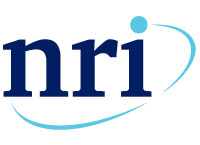Follow our news, events and position statements on the UK’s nuclear insurance industry.
News
NRI publishes its Corporate Report for 2021
NRI has today published its second Corporate Report on its website here.
“This year’s Corporate Report builds on the success of last year’s inaugural version and aims to bring the NRI to life for its members and clients,” said Mark Popplewell, NRI Managing Director. “At the same time, we wanted to use the latest report to focus on new technologies and set out NRI’s priorities for the year ahead.”
The Corporate Report 2021 details NRI’s vision for the near- and medium-term future, and features new sections highlighting the views of members and international clients, as well as the day-to-day work of NRI employees in Engineering, Underwriting and Finance.
NRI is particularly pleased to have secured an article from Tom Samson, Interim Chief Executive Officer at UK SMR Consortium, which discusses SMRs and the future of nuclear in the UK.
The report also includes articles on the evolution of nuclear fusion and the impact of Brexit.
To read the Corporate Report 2021, please go to the NRI website here.
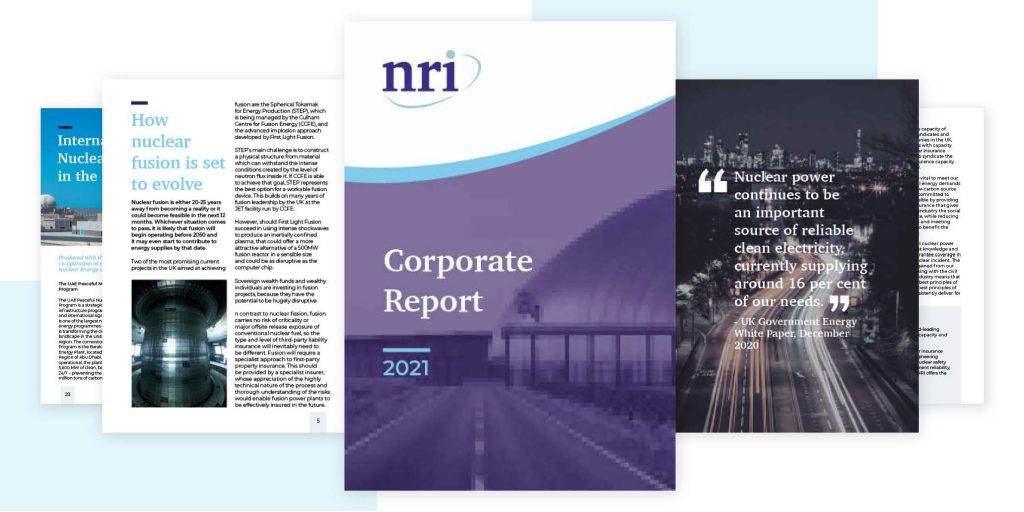
NRI conducts remote surveys to adapt to COVID-19 restrictions
As a result of travel restrictions introduced in response to the COVID-19 pandemic, Nuclear Risk Insurers (NRI) has been unable to carry out traditional physical surveys of nuclear power plants (NPPs) for most of 2020 and has instead been conducting surveys remotely.
NRI’s Engineering Surveyors have remotely surveyed three NPPs this year: Koeberg, near Cape Town in South Africa; Bruce Nuclear Generating Station near Kincardine in Canada; and South Ukraine NPP near Yuzhnoukrainsk in Mykolaiv province of Ukraine. Preparations are underway to remotely support a survey of Darlington Nuclear Generating Station, on the shores of Lake Ontario in Canada, in January 2021.
Dougie Burt, Engineering Surveyor at NRI, has managed remote surveys in South Africa and remotely supported surveys in Canada this year.
South Africa
Dougie had been due to conduct a physical survey at Koeberg in South Africa in March, but this was cancelled at the last minute due to COVID-19 and prompted a remote survey to be arranged in a matter of days. All the planning for a physical survey had already been done. The plant was entering renewal and NRI was aware of increased risks linked to a delayed steam generator replacement programme, so NRI was keen to carry out a survey to receive updates on plant performance and risk management at the plant.
Following the first remote survey, NRI arranged three quarterly videoconferences for the remainder of 2020 with management and staff at the plant to monitor how they were managing the risk. Discussions are supported by a significant amount of data provided prior to the videoconferences. Although the videoconferences have primarily been concerned with progress updates, they have also helped to cement personal bonds between NRI and the team at Koeberg.
“The frequency of the interaction during videoconferences has led to more personal and closer relationships, which have increased levels of trust,” Dougie comments. “This should improve interactions during the physical survey when we eventually visit the site, hopefully sometime early next year.”
Canada
The Canadian surveys have proven to be more straightforward, due to extensive preparations, a local presence and survey lead in Canada, provided by colleagues from Nuclear Insurance Association of Canada (NIAC), combined with the familiarity that both NIAC and NRI engineers have with Canadian sites as regular visitors during scheduled surveys. Both Canadian surveys assess the changing risk profile introduced by modifications taking place to support life extension programmes.
In the case of Bruce, these are related to the plant’s ongoing Main Component Replacement (MCR) programme, while Darlington is affected by changes introduced as part of its Refurbishment Project. Both programmes involve extended shutdowns of individual reactor plants and the gradual replacement of older systems in eight reactors (four on each site) during scheduled plant outages undertaken from 2016–2029. A comprehensive set of information and data is provided by the Canadian operators for review, prior to the surveys, which promotes further informed dialogue.
Ukraine
Val Martell, Engineering Surveyor at NRI, recently led an international team of surveyors from within the insurance pooling system when she managed a remote survey of the South Ukraine NPP.
“For remote surveys to function correctly, both sides need to make it work,” Val explains. “Fortunately, our Ukrainian colleagues are very thorough when preparing for surveys and always keen to make them successful.”
The Ukrainian team provided detailed information in advance, which the survey team, in turn, was able to review and reply to with questions aimed at assessing how well risk was being managed at the plant; these could then be further discussed during the remote survey.
Had there been existing concerns about the plant going through a particular operational change, a remote survey might not have been appropriate. But as it visits one of the four NPPs in Ukraine each year, NRI is very familiar with each site and there were no significant concerns about the South Ukraine NPP.
Engineering Sub-Committee (ESC) of the Nuclear Insurance Pooling system
NRI’s engineers are in touch regularly with colleagues in other Pools to share experiences of adapting to the challenge of survey restrictions and the changed ways of carrying out insurance risk assessments. Val Martell represents NRI on the ESC and comments: “It has been really constructive for us to be able to learn from each other. NRI contributes to best practice by identifying the things that have gone well for us, as well as being able to adopt good ideas and suggestions via the international ESC community of nuclear risk engineers”.
The ESC has now developed a framework so that if international travel is not possible, a physical survey can be carried out by domestic surveyors only, such as in the case of China. In countries where there are no domestic engineers, or at sites where non-essential visitors are not allowed, remote surveys are the best solution and have been shown during 2020 to be effective. This will be important in 2021 as COVID-19 restrictions continue to be in place.
NRI is a global leader in nuclear insurance and a member of the international nuclear insurance pooling system. Follow us on Twitter and LinkedIn to stay up-to-date with company news and industry commentary.
Making Nuclear Risk Insurers carbon neutral
Over the past year, Nuclear Risk Insurers (NRI) has partnered with carbon-analytics company, Alectro, to make big steps towards improving our environmental responsibility. The result of this is that we are delighted to announce that in pursuit of our own NRI net zero initiatives, we are now operating as a carbon neutral organisation. We have also become a signatory to the United Nations’ Climate Neutral Now initiative, a community of more than 300 organisations committed to working towards a carbon-neutral world.
Why this matters
In response to the critical threat of climate change, all around the world, nations have committed to reducing their carbon emissions in line with a target of keeping a global temperature rise below 2°C above pre-industrial levels[1]. We want to play our part in measuring and managing our emissions in line with UK national targets to ensure we pass on the planet in a good condition to future generations.
Additionally, and even closer to home, NRI’s net zero ambitions align with the industry which we service, serve and insure: the nuclear industry has delivered low carbon power, around the world, for over 60 years. As the world aims to realise its net zero targets, nuclear will continue to play a key role in enabling the transition.
Project goals
To achieve NRI’s net zero goals, we worked with Alectro to deliver the project. We wanted to:
- Conduct an in-depth analysis of all operational carbon footprint data
- Assess our own sustainability culture to make sure we were engaging in the right ways
- Create a roadmap to continually improve our footprint over time.
Mark Popplewell, Managing Director of NRI, said this about the project: “As one of the pre-eminent nuclear insurers in the world it made absolute sense to us to share the civil nuclear industries low carbon credentials and in addition, to follow the trend of insurance companies to raise their efforts around sustainability.
The steps taken so far in collaboration with Alectro, now put us in a position to confidently say we are working towards a better world and creating a more sustainable place for future generations.
NRI Net Zero Project
We used the GHG Protocol Corporate Accounting and Reporting Standard[2] as our base, and expanded it to cover as much of the voluntary emissions as we could – this meant we looked at everything from utilities use in our buildings, all the way through to our internal catering provision.
NRI’s carbon footprint for 2019 was 312 tCO2e, which worked out at 24 tCO2e per full time employee (FTE). Approximately 85% of our total emissions came from flights which contributed to this high per employee emission intensity compared to other companies who report their emissions. The two main reasons for this high value:
- We have to fly around the world for work. This is a prerequisite for our Risk Engineering survey programme and linked to our technical risk underwriting.
- A high proportion of our staff are required to fly. Whereas in larger companies, flight emissions are diluted with additional staff who are not required to fly (additional administrative and support staff).
Although there are valid reasons for the relatively high emissions/FTE intensity, we are committed to addressing the issue head-on, both by challenging the need for travel whenever possible, and by positively selecting lower impact means of travel.
The restrictions on international travel associated with the COVID-19 pandemic have of course forced us to adapt our working practices significantly during 2020. We will learn from what has worked well during this year to accelerate our ambition in respect of reducing non-essential journeys through virtual meetings and home working.
Aside from flights, we were broadly happy with our other findings, for example, our good practices in procurement from local companies, low volumes of waste generated, focus on minimising food waste, and recognising trends shifting away from red-meat consumption. However, we will continue to monitor our consumption and adapt to current trends, ensuring that our current lean processes remain so.
Overall, NRI now aims to reduce our emissions in line with the Paris Agreement, and our aligned target is to reduce emissions by 50% by 2030 from our 2018/19 base years.
This will be achieved by tracking a rolling average of emissions and annual Key Carbon Performance Indicators (KCPIs).
We will offset any remaining unavoidable emissions by using best in class emission offset projects.
NRI use offsets from The Gold Standard, and from the United Nations Carbon Offset Platform to ensure we are supporting certified projects featuring the highest levels of environmental integrity and also contributing to sustainable development.
We have offset 100% of our 312 tCO2e footprint for 2019, split between three projects in countries that support civil nuclear power.
What next?
NRI recognises that carbon credits should be used responsibly and are not a substitute for real reductions. We will therefore strive to reduce our emissions as far as is reasonably practicable to reach our goals.
By becoming a signatory to the Climate Neutral Now initiative, NRI encourages and advocates for other businesses we work with to become carbon-neutral and encourage more companies to take early climate action and act responsibly towards the planet.
If you would like to know more about NRI’s net zero activities please contact us or the Alectro team here.
Webinar – Insurance considerations for the deployment of small modular reactors (SMRs)
We are convening a new, six-monthly webinar series for our sector, entitled ‘Frontiers In Nuclear Insurance’. The inaugural session will be on ‘Insurance considerations for the deployment of small modular reactors (SMRs)’.
Missed the webinar? If you’d like a copy of the slides or watch a recording of the session, please email eithne.stanton@nuclear-risk.com.
Providing nuclear insurance expertise to the OECD’s Nuclear Law Committee
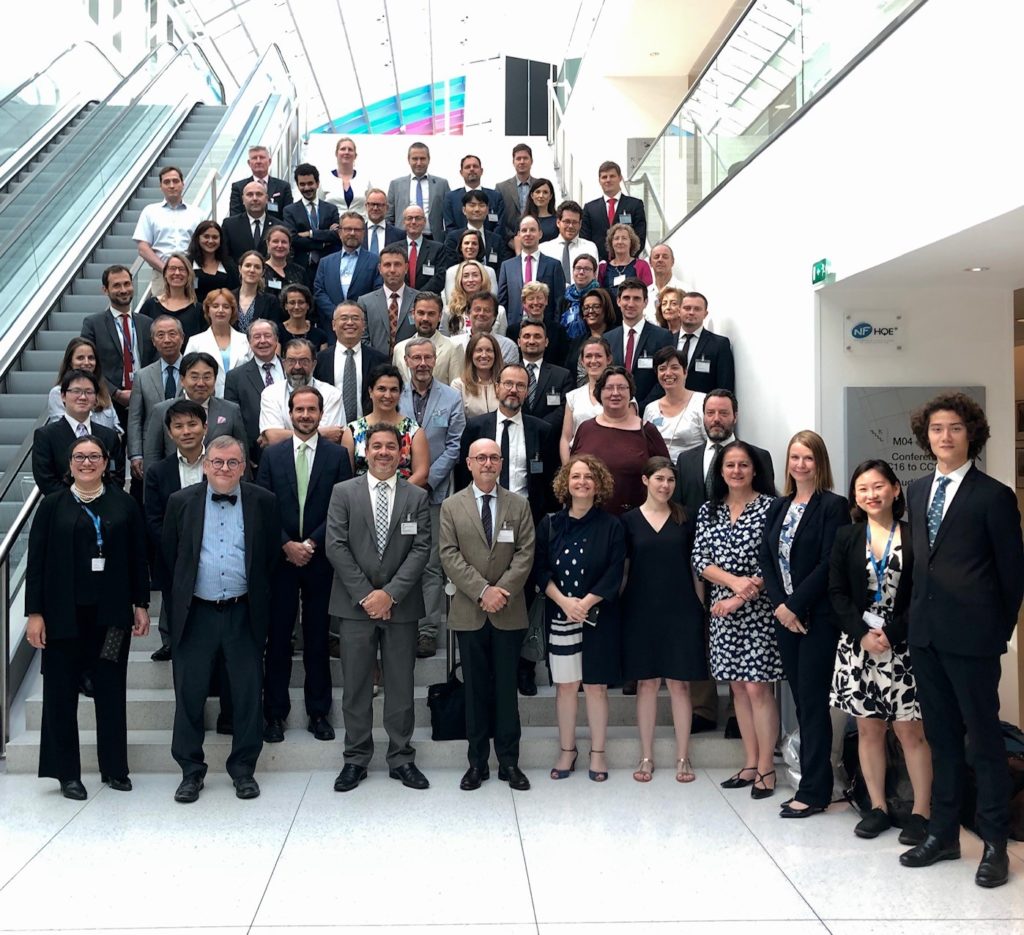
Mark Popplewell was elected in 2019 to serve as one of three nuclear insurance Pool Manager experts to the Nuclear Law Committee (NLC), an inter-government group supported by the office of Legal Counsel of the Nuclear Energy Association (NEA) – a standing technical committee of the OECD. Mark, along with the other two Pool Managers, is required to attend the NLC meeting in order to give advice on nuclear liability insurance in the context of nuclear conventions and national laws.
20th Anniversary of the Chinese Pool
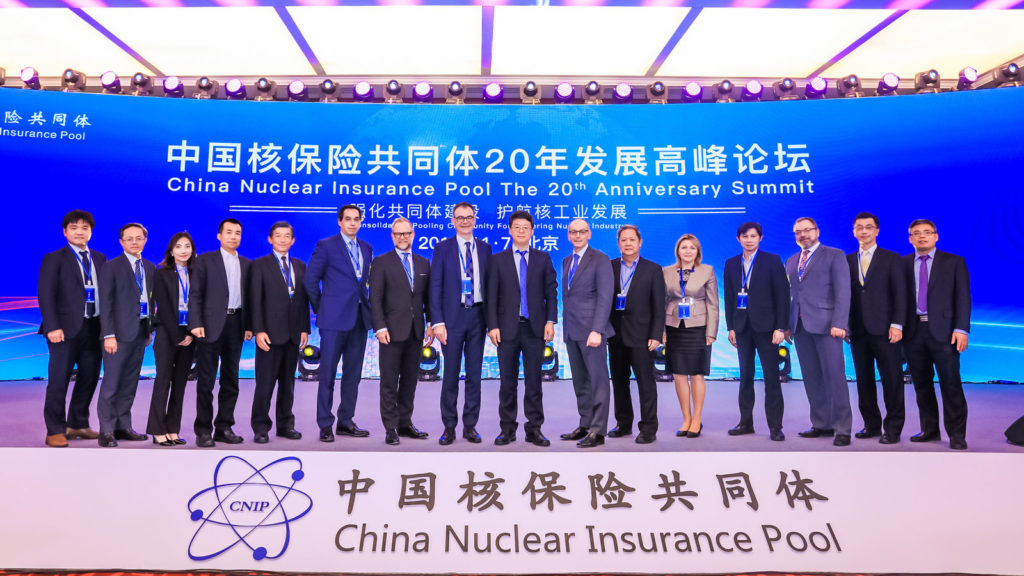
NRI was honoured to attend China Nuclear Insurance Pool (CNIP) 20th Anniversary Summit on the 7th November 2019. The Summit was opened by Mr Yuan Linjiang, Chairman of CNIP with senior guest speakers from the Environmental Protection Committee, Nuclear Safety Administration, Nuclear Emergency Office, CNNC and GNC, as well as CNIP’s General Secretary, Dr Zuo Huiqiang.
A speech on behalf of the pooling system was jointly delivered by Alain Quéré, the Swiss Pool Manager and Chairman of the GPC, and Mark Popplewell, representing NRI and Secretary of the GPC. A total of eight International Pools were also present to join CNIP in celebrating its 20th year in the fastest growing civil nuclear power country in the world.
NRI leads international insurance survey of new safe confinement at Chernobyl NPP
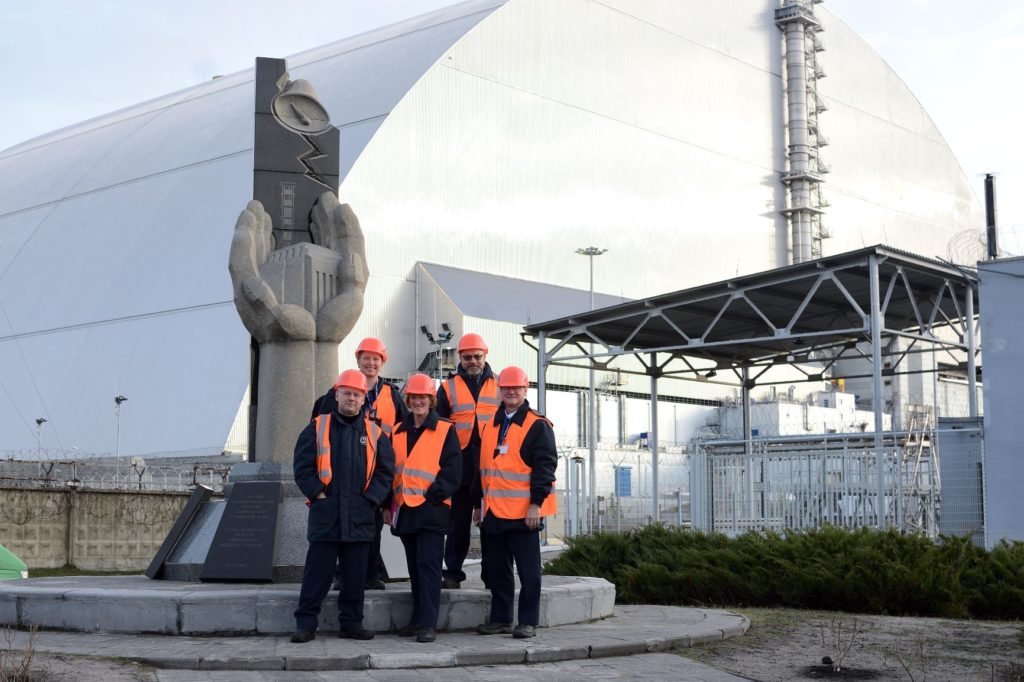
In 2019, NRI led an international insurance survey at the Chernobyl Nuclear Power Plant, in Ukraine. Val Martell and Paul Galbraith participated in a team with Věra Šídlová from the Czech Nuclear Insurance Pool, and were supported by Ukrainian Nuclear Insurance Pool manager Oleksandr Babenko and consultant Artem Zakharov.
Sharing engineering best practice at the Engineers’ Seminar
14th May 2019 Toulouse, France
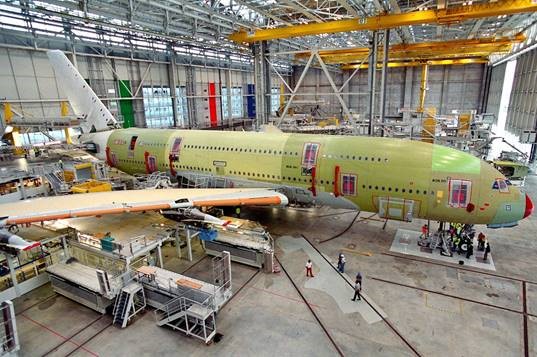
NRI attended the 2019 Engineers’ Training Seminar in Toulouse, France, in May, hosted by the French Pool, which focused on the topics of cyber security and safety culture.
Noting that Airbus are located in Toulouse, and the significance of safety culture in the aeronautics industry, the group took the opportunity to visit the Airbus production line and development laboratory.
The group walked down the A380 aircraft assembly line, exchanging views with Airbus safety culture specialists. In addition to sharing best practice and enhancing consistency across the global pooling system, the two-day seminar also allowed time for meetings and networking with pools members from around the world. The next meeting will be the 8th Nuclear Engineers Forum, which is planned for November 2020.
